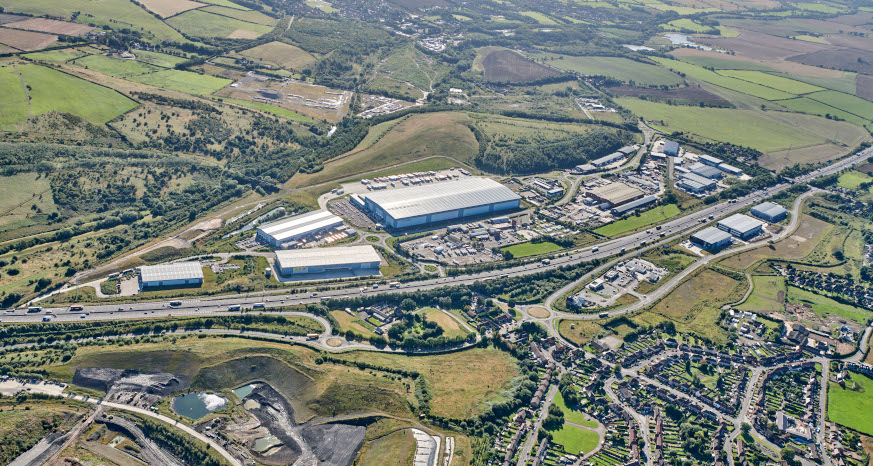A new walking and cycling route is set to be developed in Staveley, which will connect Markham Vale to the existing cycle route in the town.
The £750,000 investment is part of a wider £7 million fund announced by the government, which will improve a number of areas across the East Midlands region.
The funding which has been given the green light is part of an early investment offered to our area as part of devolution negotiations. It is not dependent on devolution proposals going ahead.
The programmes which are being funded are:
- £750,000 for a new cycling and walking route in Derbyshire, a 1¼ mile link connecting Markham Vale to the existing cycle route in Staveley.
- £1.5 million for the new roundabout on the A6 at Fairfield in Buxton, Derbyshire, allowing access to housing development land. The roundabout provides access to sites for 461 new homes, including 30% classified as affordable. It also brings work to an area of social deprivation. This work has been completed, with the funding which has just been approved going towards the cost.
- £1.5 million for a new growth through green skills. The investment will enable the creation of a new £5.4 million flagship skills centre and low carbon demonstrator in our region, to be operated by West Nottinghamshire College, as well as two electric minibuses for getting students to and from the site, to support the growth of a future low carbon economy as we work towards net zero.
- £2 million for a new long-term private rental scheme to address homelessness in Nottingham City and Derby City and reduce the use of bed and breakfast accommodation for housing.
- £1.22 million for more affordable housing in Derby city, where there is currently a shortage, to provide 15 extra social houses to be let at an affordable rent. It will mean less reliance on temporary bed and breakfast placements and shorter waiting times for longer-term accommodation.
Other regeneration and net zero projects are also in the pipeline, with decisions on these expected soon.
Derbyshire County Council, Nottinghamshire County Council, Derby City Council and Nottingham City Council have been working with the Government on devolution plans including a package of local powers and funding worth £1.14 billion, from 2024. If the plans go ahead, it would also mean a new regional mayor.
The leaders of the 4 councils signed up to work on a devolution deal on 30 August this year at Rolls Royce in Derby. Since August, the councils have developed a more detailed proposal, which includes more information about how devolution would work in our area. The proposal was the subject of a public consultation, which took place from 14 November 2022 to 9 January 2023.
Barry Lewis, Leader of Derbyshire County Council, said: “The approval of these projects is a solid example of the benefits that devolution are bringing to our region.
“These schemes will make a measurable difference to people’s quality of life through opportunities to gain new skills, environmental and health benefits from walking and cycling, better housing and new infrastructure.
“This is the East Midlands levelling up, and finally getting the benefits that we have missed in the past.”
Devolution would mean a new guaranteed funding stream for our region of £38 million a year over a 30-year period. Covering Derbyshire, Nottinghamshire, Derby, and Nottingham, the devolved area would cover around 2.2 million people, making it one of the biggest in the country.
The devolution deal includes an extra £16 million for new homes on brownfield land and control over a range of budgets like the Adult Education Budget, which could be better tailored to the needs of people in our communities.
The regional mayor would lead a new combined authority, which would include representatives from existing local councils, with decision making powers and resources moving from London to the East Midlands. Local businesses would also have a voice, as well as other organisations.
Devolution would not mean scrapping or merging local councils, which would all continue to exist as they do now and would still be responsible for most public services in the area. The mayor and combined authority would instead focus on wider issues like transport, regeneration, and employment across both cities and counties.
The public consultation on devolution, open to residents, businesses, community groups and other organisations, took place from 14 November to the 9 January.
